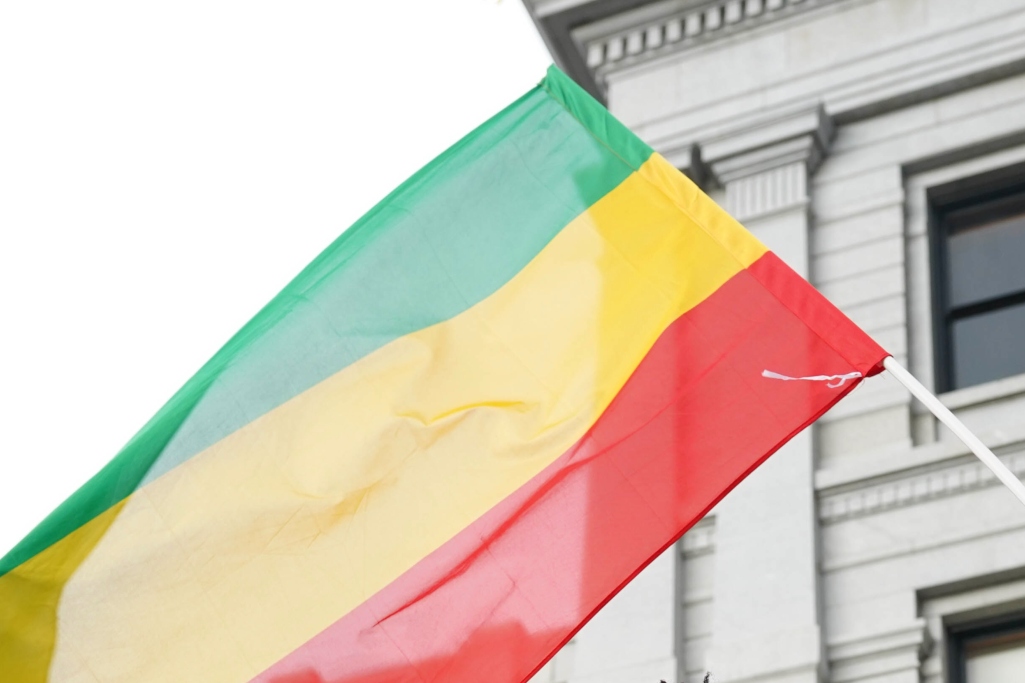
Americans love holidays. We gather around a table every fall to marvel at our blessings. In a few weeks, we’ll wear red, white and blue and rejoice in our freedom. Holidays let us reaffirm our national, religious or cultural values. One holiday celebrated by some Christians is Juneteenth.
Juneteenth commemorates the liberation of enslaved people in the Confederate states. The Emancipation Proclamation, enacted in 1863, declared slaves in the Confederate states as free. But not all were actually freed. In cities like Galveston, Texas, the news was withheld from the enslaved. With the surrender of Robert E. Lee, southern states had no choice but to accept their emancipation. So on June 19, 1865, General Gordon Grainger traveled to Galveston to proclaim that the Emancipation Proclamation had set enslaved people free. The day became known as Juneteenth.
Some Christians compare General Grainger’s role to that of an evangelist, proclaiming good news. While well-intentioned, this comparison obscures the greater lessons we can learn from the enslaved people’s freedom, which point us to a more faithful understanding of the imago Dei and the Great Commission.
Juneteenth and the imago Dei
1. Juneteenth reminds us that freedom is essential to the expression of the imago Dei.
Genesis 1:27 tells us that “God created man in his own image.” Contemporary scholars believe this imago Dei involves structural (reason and will), functional (what we do) and relational (with God, others and creation) capacities that make us human. When God created Adam and Eve, He created them with the physical freedom necessary to express the imago Dei and obey His commands. Physical freedom allowed them to work and rule over nature, reproduce and live in relationship with God, others and creation.
Chattel slavery robbed enslaved people of freedom in childbirth and worship and turned nature into an oppressive lord over their lives. Enslavement didn’t remove the image of God from people, but it did remove their ability to fully and freely express it. We celebrate Juneteenth because it granted enslaved people the full expression of the imago Dei.
We celebrate Juneteenth because it granted enslaved people the full expression of the imago Dei.
2. Juneteenth instructs us to reject anthropological distortions from American slavery.
Some defenders of American slavery believed that Black people were not human, and others rejected the notion that Black people descended from Adam. This unravels the doctrine of original sin and the gospel.
If Black people are not human, can they be sinful or saved? If Adam is not the representative of Black people, Christ as the second Adam is irrelevant to their salvation. Consequently, there would need to be another gospel for Black people, or they can’t be saved at all.
In celebrating Juneteenth, we reaffirm the dignity and humanity of Black people. Enslaved people were indeed image bearers descended from Adam, capable of being saved by the gospel.
Juneteenth and the Great Commission
1. Juneteenth shows us that freedom is vital to fulfilling the Great Commission.
Although African American churches and missionaries existed before Juneteenth, freedom granted to the enslaved resulted in the growth of African American churches and missionary work.
Historian Paul Harvey claims that “independent churches and denominational organizations sprang up quickly in black communities, including thousands of small local congregations and major national organizations” after the Civil War. Benjamin Mays and Joseph William Nicholson identified individual initiatives and church missions as two reasons for the growth of the Black church after 1865. They cited a study that revealed that 110 out of the 185 rural churches present between 1866-1899 were birthed after emancipation. Missionaries were sent to the South and places like Africa, Canada, Haiti and Jamaica.
Newly freed people planted churches and fulfilled the Great Commission individually and corporately.
2. Juneteenth demonstrated eschatological discipleship.
Trevin Wax defines eschatological discipleship as spiritual formation “that calls for contextualized obedience as a demonstration of the Christian belief that the biblical account of the world’s past, present, and future is true.” Simply put, the Great Commission involves teaching Christians how to obey God in their cultural context. This form of discipleship was embodied by African Americans after Juneteenth.
After Juneteenth, cities and states imposed social barriers to hinder the flourishing of Black people. Their discipleship involved teaching others how to live in relationship and obedience to God in the midst of racism, injustice and inequality. Juneteenth teaches us that the Great Commission must involve eschatological discipleship. Disciplers consider the cultural context of those they are discipling and teach them to live holy in it.
We celebrate Juneteenth to rejoice in the full expression of the Imago Dei among our brothers and sisters who were freed, in the preservation of the gospel, and in the eschatological discipleship of the late 19th century believers that encourages us now to go and fulfill the Great Commission.
(EDITOR’S NOTE – Sherelle Ducksworth is a native of Clarksdale, Miss., and currently serves as a Christian Studies instructor at Anderson University. She is also a Ph.D student in Systematic Theology at Southeastern Baptist Theological Seminary. This article originally appeared on the Center for Faith & Culture’s website.)


